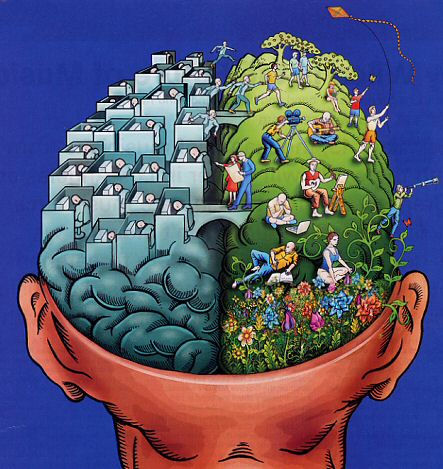
New research suggests that the simple act of Googling may be good for your brain health.
Scientists at the University of California, Los Angeles, have shown that searching the Internet triggers key centers in the brain that control decision-making and complex reasoning. The findings suggest that searching the Web helps to stimulate and may even improve brain function.
The U.C.L.A. researchers studied 24 healthy people between the ages of 55 and 76. Half of the study participants had experience searching the Internet, whereas the other half had no experience. Participants performed Web searches and book-reading tasks while undergoing functional magnetic resonance imaging scans, which measure the level of cerebral blood flow.
While all participants demonstrated the same brain activity during the book-reading task, the Web-savvy group also registered activity in areas of the brain that control decision-making and complex reasoning, the researchers said.
“Our most striking finding was that Internet searching appears to engage a greater extent of neural circuitry that is not activated during reading — but only in those with prior Internet experience,” said principal investigator Dr. Gary Small, director of U.C.L.A.’s Memory and Aging Research Center, in a press release.
“The study results are encouraging that emerging computerized technologies may have physiological effects and potential benefits for middle-aged and older adults,” Dr. Small said. “Internet searching engages complicated brain activity, which may help exercise and improve brain function.”
During Web searching, the Web-savvy volunteers showed a twofold increase in brain activation when compared with those who had little Internet experience. The tiniest measurable unit of brain activity registered by the functional M.R.I. is called a voxel. During Internet searching, those with prior Web experience sparked 21,782 voxels, compared with only 8,646 voxels for those with less experience.
The researchers noted that compared with reading, the Internet’s wealth of choices requires that people make decisions about what to click on, an activity that engages important cognitive circuits in the brain. Dr. Small said the minimal brain activation shown by the less experienced Internet users may be due to the fact that it was a new experience, and the Web users weren’t yet adept at clicking around and making choices. He said that with more experience, the novice Web users may eventually demonstrate the same level of brain activity as the more computer-savvy participants.
“A simple, everyday task like searching the Web appears to enhance brain circuitry in older adults, demonstrating that our brains are sensitive and can continue to learn as we grow older,” Dr. Small said.
Dr. Small is the author of a new book, “iBrain: Surviving the Technological Alteration of the Modern Mind.”



2 comments:
Well, that is GREAT news. I spend so much time surfing the net that I now have hopes of becoming a genius! Thanks for giving me permission to Google even more. Love your blog!
Thanks Janet. Hope you got my email applauding your site and your wonderful title of Gen Plus. I found myself using it today in a keynote speech I was giving at a conference on managing an ageing workforce. I did of course say where I got it from.I still think that you are a little young for this generation yet! looking forward to staying in touch with your blog.
Post a Comment